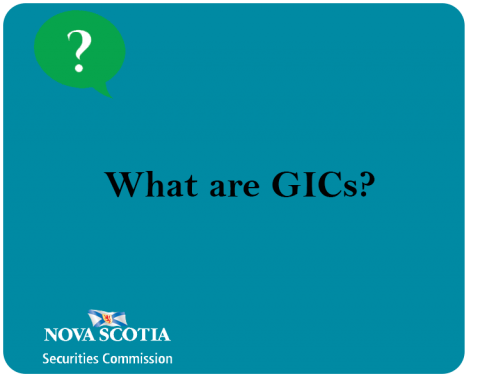Submitted by nsscadmin on

In a throwback to look at some basic investments, we’ve been asked to go over Guaranteed Investment Certificates (GICs).
You may have heard the term GICs on a commercial for a financial institution or on an online ad. A GIC Is a deposit certificate that is issued by a financial institution to an investor. The investor is effectively providing a short-term loan to the financial institution in exchange for their principal and interest being paid at maturity.
The term on a GIC can be a short as 30 days, or as long as 10 years. Typically, the longer the term the higher the interest paid. One important note, GICs with terms over five years from a bank are not protected by Canada Deposit Insurance Corporation. Most GICs pay a fixed-interest rate at maturity, but there are some GICs that have their returns tied to an index. GICs tied to an index typically have limits on how much an investor can make, so be sure to look at that before making any investment.
GICs are nearly risk free, as there is practically no risk that the financial institution will not pay you your principal and interest upon maturity. The only risk comes in if you need to cash out a GIC prior to its maturity date. Most GICs are locked in until maturity and can only be withdrawn early if the investor pays a redemption fee.
